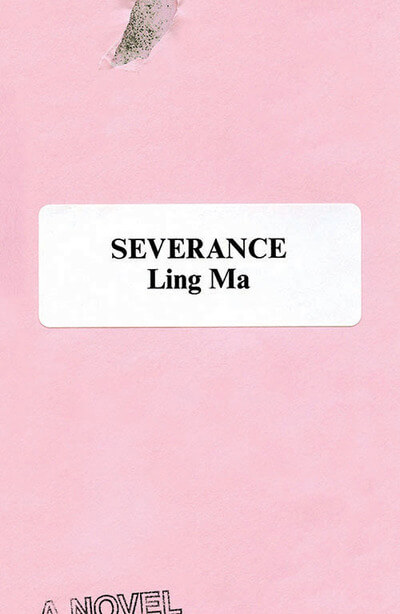The fevered victims of Ling Ma’s astounding debut novel aren’t exactly zombies. As their bodies fall apart, they’re not bumbling about the ruined world or trying to kill you. Instead, they enact and re-enact the rituals of their former day-to-day lives. Retail workers fold shirts in empty stores. Old women laugh at the television and change the channel. Families mime the act of sitting down for dinner, chatting about their days; they clear the plates and do it again. In the world of Severance, the drone of normal life becomes a buzz too loud to ignore.
The novel follows the story of Candace Chen, the 20-something daughter of Chinese immigrant parents whose mother has recently died of Alzheimer’s. Candace splits her narrative into two timelines: before Shen Fever decimates the global population (she calls this “the End”) and after (“the Beginning”). In the End, she works in the Bible production department of a New York City publishing company. She has a boyfriend named Jonathan with whom she watches classic New York City movies. As Shen Fever begins to spread, Candace continues to work—until she is one of the only living humans in New York, capturing the deserted metropolis via photographs posted to her anonymous blog, NY Ghost.
In the Beginning, Candace has joined a group of survivors led by a man named Bob. Bob leads the group on “stalks” into homes throughout the Midwest, gathering supplies and killing any of the fevered. The stalks are enacted as ritual, the survivors conducting a type of prayer over each house they enter. There is repetition here as well. The internet once rendered this world “nearsighted with nostalgia,” as Bob says, and the Beginning is supposed to be a second chance. But the stalks are laden with memories of who we once were. The fevered are even described as having the eyes of someone who is incessantly checking their phone, or who is staring at their computer, glazed and unseeing.

“It was like burrowing underground and the deeper I burrowed the warmer it became, and the more the nothing feeling subsumed me, snuffing out any worries and anxieties. It is the feeling I like best about working,” Candace says of one of these stalks, though she easily could’ve been referring to a Bible she’s working on, or when she’s drifting about the city as NY Ghost, or even when she’s moisturizing her face.
Ma’s engrossing, masterfully written debut transforms the mundane into a landscape of tricky memory, where questions of late-stage capitalism, immigration, displacement and motherhood converge in such a sly build-up as to render the reader completely stunned. It’s just an office novel, after all, with some worker-bee politics and consideration of the commute, the lunch break, the after-work cocktails. But Severance demands to be wondered at, only to flip around the gaze and stare back at you.
To be a millennial is to have been betrayed by an economy that once promised you everything. So after that fails, where do you look for yourself? In religion, in family, in memories on the internet? As a reader of Candace’s blog writes to her, “How do we know . . . that you’re not fevered yourself?”





